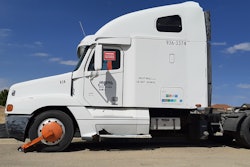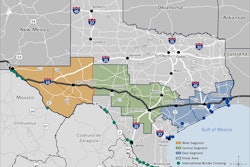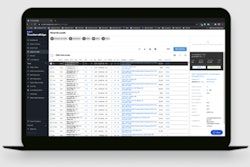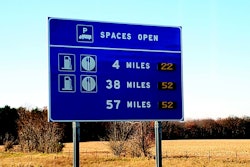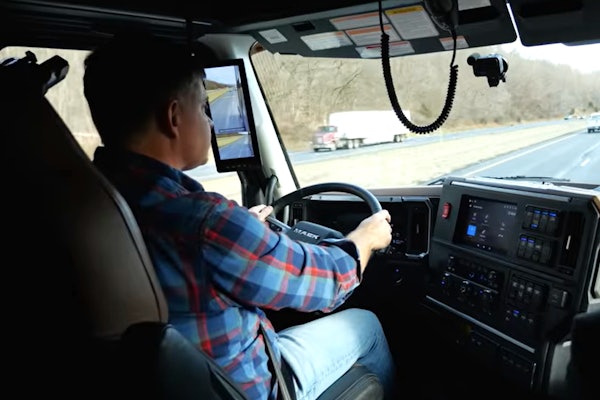Trucking news and briefs for Friday, Sept. 30, 2022:
DOT hosts meeting focused on truck parking
The U.S. Department of Transportation on Friday brought together state, industry and federal leaders at a meeting of the National Coalition on Truck Parking to share resources available in President Biden’s Bipartisan Infrastructure Law to address the nation’s truck parking shortage.
At the meeting, DOT shared a new handbook for states that details strategies for developing truck parking and best practices on designing and constructing new truck parking. Officials also discussed new and expanded funding resources that are eligible for truck parking projects.
According to DOT, the meeting built on the commitments of the Biden-Harris Administration’s Trucking Action Plan, which addressed driver recruiting, retention and other issues.
Truck parking has been one of the top issues brought to DOT Secretary Pete Buttigieg during his tenure. The Owner-Operator Independent Drivers Association and the American Trucking Associations wrote a letter to DOT earlier this year citing that 98% percent of drivers report problems finding safe parking, costing drivers more than 56 minutes of drive-time to find parking. That wasted time is estimated to cause a $5,500 loss in annual compensation -- roughly a 12% pay cut.

“I’ve heard from countless truckers across the country about how the shortage of truck parking costs them time and money -- not to mention making our roads less safe and weakening our supply chains,” Buttigieg said. “We’re using funds from President Biden’s Bipartisan Infrastructure Law to help address truck parking shortages, and we’re working with state and industry leaders to develop more parking that will improve safety and quality of life for our nation’s truck drivers.”
DOT touted recent investments in truck parking through the INFRA program, which included $15 million to add approximately 120 new truck parking spaces along the I-4 corridor in Florida between Tampa and Orlando and a $22.6 million investment to add approximately 125 spaces along I-40 east of Nashville. The Federal Motor Carrier Safety Administration also awarded $1.4 million in grant funding to Montana and Kentucky to improve truck parking through its High Priority Innovative Technology Deployment grants.
“One of the leading causes of truck crashes is driver fatigue,” said FMCSA Administrator Robin Hutcheson. “It is clear that adequate rest for drivers is foundational for safe operations. We have heard loud and clear from drivers -- they need more places to rest, and they need to be safe and secure while doing so. We are proactively working at the local and regional level to point to the numerous resources across DOT for truck parking construction, expansion, and technology solutions, and we will continue to work collaboratively with agencies within DOT and with all of our partners in the industry.”
[Related: Parking perils: The increasing cost, and risk, of booting and towing]
Propane haulers petition FMCSA for HOS exemptions
The National Propane Gas Association (NPGA) is requesting a five-year exemption for its member companies from several provisions in the hours-of-service regulations “to enable the propane industry to prepare and respond to peak periods of consumer demand among residential, agricultural and commercial consumers,” the group said in its request to the Federal Motor Carrier Safety Administration.
NPGA’s petition states that, because of various consumer needs, long- and short-haul propane drivers often reach the maximum operating HOS limits within three or four days, and subsequently, companies experience reductions in available drivers while consumer demand continues.
The group asks FMCSA to allow its drivers to extend their 14-hour duty period to no more than 17 hours; to extend the 11-hour driving period to no more than 14 hours, following 10 consecutive hours off-duty; to waive the 60- and 70-hour rules for a period of no more than six consecutive days; and to allow a period of six consecutive days to end with the beginning of an off-duty period of 34 or more consecutive hours.
According to NPGA, the purpose of their request is to “efficiently and safely prepare and serve residential, commercial, and agricultural consumers ahead of and during peak consumption periods.”
NPGA said carriers operating under the exemption would be required to carry documentation to demonstrate periods of peak consumer demand, including a notice of railroad service delays, report of electrical service interruption, report of natural gas interruption, forecast and weather reports, and more.
According to the request, NPGA represents nearly 2,500 companies and 36 state and regional associations representing members in all 50 states. Their membership includes retail marketers of propane gas who deliver the fuel to the end user, propane producers, transporters and wholesalers, and manufacturers and distributors of equipment, containers, and appliances.
FMCSA is requesting comments on the petition, which can be made here through Oct. 31.
[Related: Owner-ops, groups: COVID hours waiver should open door to more flexibility]
Pilot partners with vets-focused reading program to connect drivers with families at home
Pilot Company announced this week it is partnering with United Through Reading, a national non-profit serving military families, to help military veterans in the transportation industry stay connected with their families through reading.
As the exclusive sponsor of United Through Reading’s Transportation Industry Veterans Outreach program, Pilot Company is providing assistance to extend United Through Reading’s app-based program to veteran professional drivers.
Using the United Through Reading app, veterans verified through ID.me can select a free book from their extensive collection, including eBooks, and record themselves reading a story to their family. United Through Reading will send the family a hard copy of the book or eBook along with the recording, enabling veteran drivers to read with their children no matter the distance or time zone.
“What better way is there to stay connected to your loved ones than sharing a story,” said James Haslam II, veteran and Pilot Company Founder, Chairman Emeritus. “United Through Reading gives professional drivers who are veterans a platform to read and share a book with their family back home, helping relieve some of the stress of being on the road and providing a way to experience special moments together regardless of the distance.”
